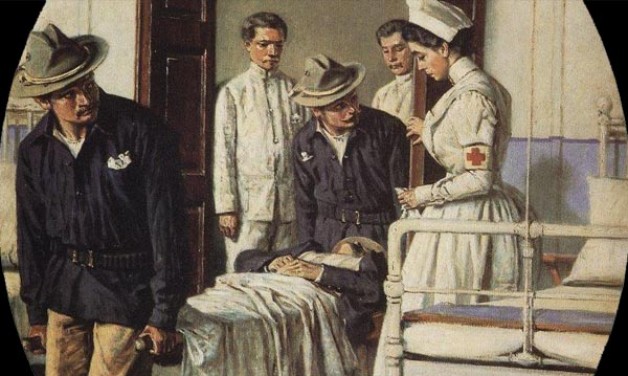“Come in.”
The chaplain and I entered through the door and found a battle-weary soldier sprawled out on the bed. One of his legs, stuck full of pins, hung suspended by a metal frame.
“I guess you’ve seen better days,” the chaplain quickly commented.
“You have no idea,” the soldier replied. Then he launched into his story.
He had been on patrol in Iraq with one of his buddies. The field was supposed to have been cleared of mines, but providence had ordered things differently that day. The explosion flipped the Humvee and sent the soldiers flying. They both hit the ground unconscious as the vehicle rolled away, flaming like a furnace. When he woke up, he was unsure of what had happened exactly, but, realizing that he was still alive, he began to wonder,
Why me? How could this happen to me? Why am I still alive and not dead? Is there someone really looking out for me?
He and his buddy were medevaced back to the states and brought to the Wounded Warriors Ward so that they could receive full-time medical care. When the chaplain and I showed up, this soldier had already begun to realize that his body might not be the only thing in need of treatment.
In his weeks at the hospital, while doctors tried to reconstruct what was left of his leg, he couldn’t escape questions about God and suffering: If there really is a good God, why did this happen to me? Why is there suffering in the world? Why is my buddy down the hall still in a coma, while I’m fully conscious?
These questions and others sometimes lead to loss of faith. After all, it’s natural to ask why a good and loving God would allow suffering. And many get discouraged by the lack of a plainly reasonable answer. Even as Christians, we can’t always explain the “why” behind someone’s suffering. Thus, many end up falling into despair. Yet, this soldier showed that another conclusion can be drawn:
I should be dead. But this whole thing has made me realize that I think I finally know what it means to say, “I believe in God.”
You see, this soldier had grown up without any faith, but when he entered into the darkness of suffering, he was drawn to the light of truth. He wondered why he was still alive, and he concluded that there must be some reason. As he told his story, it became clear to the chaplain that this man had awoken to the Truth who is God. As he lay there watching the doctors work day after day, he came to realize, not that his situation was a proof against God’s existence, but that it was actually evidence that there is a God—one who both loves and cares for men.
The chaplain offered some words of encouragement and arranged to come back later to answer some of the questions that might follow upon this gift of faith. Then we left through the same door which, for one soldier, had become the portal of faith.
✠
Image: Vasily Vereshchagin, In the Hospital







